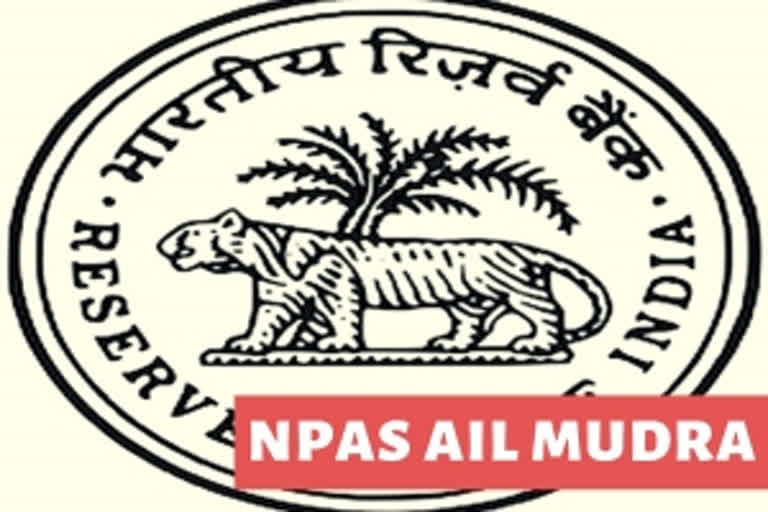Hyderabad (Telangana):In spite of Pradhan Manthri Mudra Yojana (PMMY) launched by Modi Government in 2015 has achieved set targets, an increase of non-performing assets (NPAs) due to unpaid loans has been caused of concern for banking sector.
It stresses the need for banks to review the loan procedures as the deputy Governor of the Reserve Bank of India MK Jain has warned against an increase in unpaid loans offered through MUDRA (Microsoft Finance Development and Refinance Agency Limited) scheme.
His observation gets significance that the bankers should assess properly the loan repayment capacity so that the traders getting loans. Also in the past RBI former Governors have expressed similar concerns at the increase in non-payment of loans taken.
Former RBI Governor Raghuram Rajan has warned last year that increase of loans to micro, small and medium traders may lead to a crisis in the banking sector. It led to a debate in government and in the banking sector. In four and half years of Mudra scheme, which aims to offer Rs 10 lakh maximum loans to MSMEs without any assurance, more than Rs 10 lakh crores were offered to about 21 crore beneficiaries.
Also read: India and Foreign Direct Investment: Changed Focus Necessary
As a result, crores of micro and small traders grew financially as they are making better business. However, non-payment of loans was put at Rs 5067 cr in 2016-17 financial year, Rs 7277 cr in 2017-18 and Rs 16,481 cr in 2018-19 and may rise further in this fiscal. The problem of unpaid loans is more in PSBs and Banking major SBI tops in the list followed by Punjab National Bank, Bank of India, Canara Bank and Syndicate Bank. The ratio of unpaid loans rise to 2.58 per cent in 2017-18 and 2.68 in 2018-19 fiscal as they grow with loans.
MUDRAloans list...
After the adverse effect of the scrapping of big notes, micro traders faced another jolt of GST (Goods and Services Tax) in 2017. As a result, crores of traders lost their employment while the ratio of unpaid loans was also increased. Many small and new traders Including those obtained loans below Rs 50000 under Shishu scheme, failed to sustain in businesses as they could not follow changing market trends due to lack of skills.
Small traders of readymade clothes, bakeries, tiffin centres, tea stalls and others quit the business as they failed to face competition. In the manufacturing sector, small traders though repay loans with financial discipline failed to withstand stiff competition - domestic and international as imported products from China, Vietnam and South Korea sell at cheaper prices. Micro and small traders failed to do business on expected lines of their products.
Though the government collects anti-dumping duty on imported goods, Illegal entry of the same into our country proves costly in manufacturing sector leading to the closure of some small businesses as they failed to follow marketing trends.
